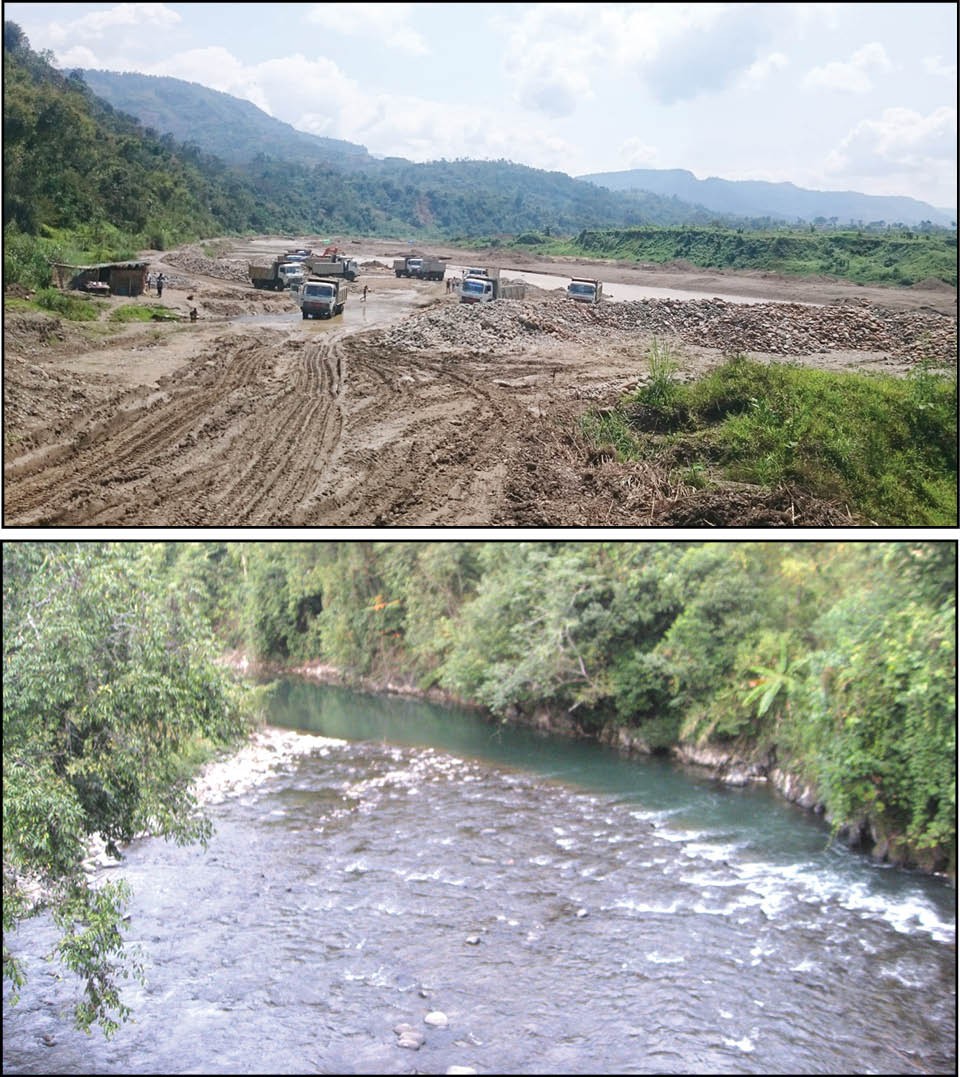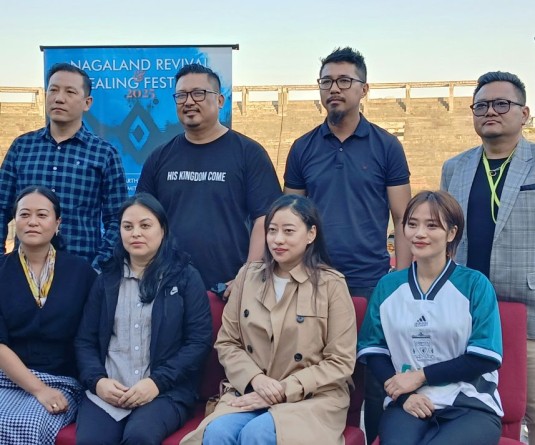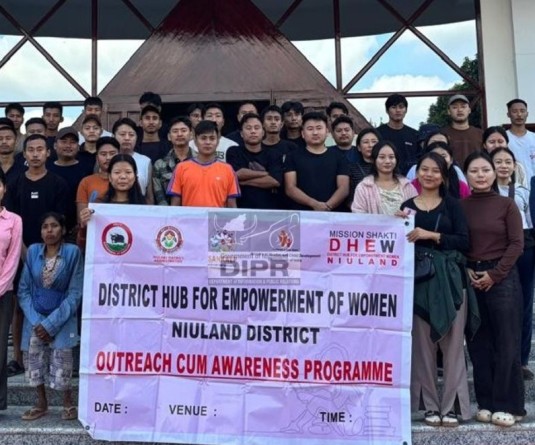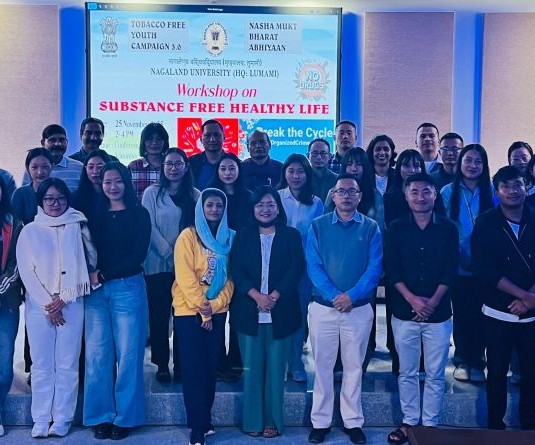(TOP) In this photo taken on April 2, 2016 several trucks are seen laden with gravel, stones and boulders from riverbeds and riverbanks on Dikhu River in Naginomora which are extracted with heavy machinery. Unregulated and large-scale mining in recent times has raised concerns about environmental damages affecting both the river system as well as those people depending on it for livelihood. (BOTTOM) Taken in March 2016, a picturesque picture of the unrestricted and natural flow of Dikhu River between Noksen and Mokokchung, unblemished by mining or other commercial activities. (Photo courtesy Finger Print)

Riverbed Mining in Dikhu River raises grave environmental concerns
Dimapur, April 6 (MExN): Riverbed mining in Dikhu River at Naginomora sector is causing huge environmental damages affecting both the river system and people depending on it as their source of livelihood.
Humans have always had a special relationship with rivers but the damage done is “unimaginable and completely irreversible,” stated a press note from Fingerprint-Design & Events, a group closely associated with Wildlife and Environment Conservation Campaign.
A team of its volunteers had visited the riverbed mining area in Naginimora under Mon district on April 2 and interacted with Forest department officials and observed the damages firsthand.
Fingerprint pointed out that while negligible mining was practiced before, the extensive river mining with machinery in the area started in 2008, quoting the Forest department officials.
“The Government has been receiving a royalty of Rs. 50 per truck,” it added. While stating that mining of gravel, stones and boulders from riverbeds and riverbanks across the State has seen an unprecedented rise in recent years, it argued that the “under managed, unregulated and large-scale mining” on Dikhu river in Naginomora is resulting in “ complete plunder of the riverbed.”
While acknowledging that commercial riverbed mining can be done with certain “check and balance,” Fingerprint claimed that, land owners have sold off the right to extraction along the Riverbed to contractors from outside the state without any restriction and condition.
“The land owner and the contractors are more concerned with immediate profit rather than long term effects of the damage,” it further maintained.
The group also produced photographic evidence showing the effects of mining in the Naginimora sector. While the river flowing through the area between Noksen and Mokokchung was clean, the same river in the Naginimora was distinctively murky. Pointing to the complete contrast, the Fingerprint wondered why no action has been taken.
“Is it because we are ignorant about it or we don’t care what happens in such a rural and isolated place like Naginomora? Or do we have the notion that small environmental changes like this will not affect our larger peaceful environment?”
Contenting that a riverbed or a river is a ‘common good,’ it asked: “How can we own a riverbed or river for that matter or do we need to start owning the Atmosphere to sell or let other people extract oxygen? In this context, Fingerprint requested the concerned department to stop the riverbed mining in Naginomora and disallow riverbed mining machinery in other parts of the state.
It also urged the people to follow the example of Dimapur district where the machinery riverbed mining is made illegal by the order of Deputy Commissioner.
“Such mining will destroy the river as a source of livelihood for our younger future generation,” it said adding the need of the hour is sustainable development.
“We were not so poorer before such mining and we are not so richer by mining now and definitely we are not going to be richer when the entire riverbeds are damaged by such mining.”





